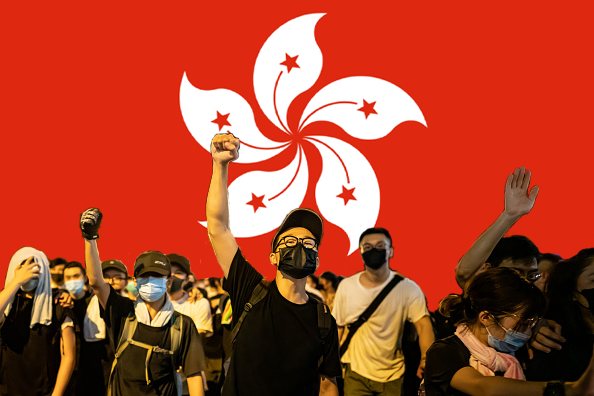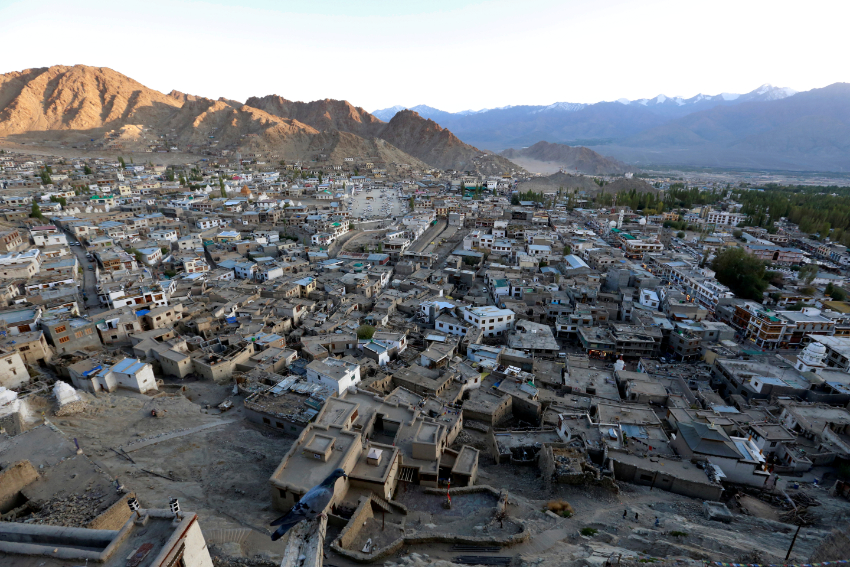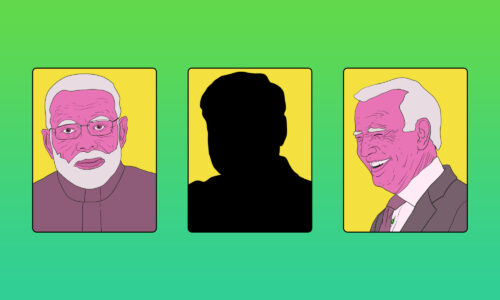Weekly Briefing: Police brutality in Hong Kong; the world’s most dangerous place; progress for LGBT Chinese


Hello, readers! The China Project Weekly Briefing details the most important China news from the past week. It also comes in the form of a free newsletter — sign up using the box at the top of our homepage.
~
Our top two stories are, again, about Hong Kong and the U.S.-China techno-trade war. See the previous Weekly Briefing if you’re not caught up.
The protests in Hong Kong are now in the 10th week, and the trade war is now on day 404.
How, and if ever, the tensions resolve in these two areas could dramatically change the course of China’s rise in the next decade.
To get daily insights into these topics and analysis of a wide range of news from today’s China, subscribe to The China Project Access. Members also get free copies of our Red Paper series that analyzes the months-long trends of big stories like Hong Kong and the trade war, and tells you what could disrupt your expectations in the months to come.
—The Editors
1. Hong Kong: Anger at the police as Beijing sees ‘signs of terrorism’

Photo credit: The China Project illustration
Protesters in Hong Kong are incensed after another weekend of clashes with police. “We see the police all across town acting completely out of their control,” activist Nathan Law (羅冠聰 Luó Guāncōng) tweeted, listing police actions, including these that he said all occurred within one day:
- “Shooting a female protester in close distance, which hit her in the right eye and blinded her permanently, according to information from doctors…
- Framing protesters as aggressive and arresting them on much harsher charges, after putting weapons inside their bags the moment they were pressed against the wall or ground…
- Allowing thugs — many with ties to organized crime, based on experience from previous incidents — to attack protesters and even passersby indiscriminately…
- Firing multiple canisters of tear gas inside Kwai Fong MTR station, which violated the factory instructions of no usage indoors…
- Impersonating protesters by wearing the same gear (yellow helmets, black masks, etc.) and then ambushing them on site just as uniformed cops arrived for mass arrests.”
Beijing is quickly losing patience with the unrest, and has greatly ramped up its rhetoric in the past week alone.
For example, the Communist Party’s primary mouthpiece, the People’s Daily, published SIX consecutive front-page commentaries on Hong Kong. Even two in a row would have indicated high concern; a whole week of coverage means that Beijing sees this as a profound crisis.
- The People’s Daily communicated, in order, support for the Hong Kong police, support for Chief Executive Carrie Lam, a defense of Beijing’s interpretation of “One Country, Two Systems,” an exhortation to patriotism, a plea to return to “stability and prosperity,” and a condemnation of “interference of foreign forces” that Beijing blames for the unrest. (All links in Chinese.)
- Beijing’s Hong Kong and Macau Affairs Office has now commented three times on the protests: Once to blame CIA “black hands” for whipping up trouble and warn the protestors, “Play with fire, you’ll get burned” (玩火者必自焚 wánhuǒzhě bì zìfén), another time to compare the events in Hong Kong with a “color revolution,” and a third time today to say that the protests show “signs of terrorism.”
Some Hong Kongers do still have hope, despite the government’s absolute unwillingness to consider the protestors’ demands. A notable example of this is Cheah Cheng Hye (謝清海 Xiè Qīnghǎi), an enormously successful hedge fund manager and certainly part of the city’s elite, who wrote an op-ed to urge “badly needed political reform” as the correct response to the protests.
2. Will the trade war lead to the Trump Recession?

Photo credit: The China Project illustration
The U.S.-China techno-trade war is spinning out of control. Further affirming that the Trump administration has no coordinated strategy on how to “win” the trade war, Bloomberg reported that President Trump did not consult about the latest tariff escalation with his trade representative, Robert Lighthizer.
Though the effects of the trade war have been moderate so far — but don’t tell that to American farmers, who say they are suffering under the weight of tariffs and the now seemingly permanent reduction in access to the Chinese market — that probably won’t stay true through the end of this year.
Just take it from Lawrence Summers, the Harvard economist who served as the director of the National Economic Council during the first Obama administration, who tweeted on August 5, “We may well be at the most dangerous financial moment since the 2009 Financial Crisis with current developments between the US and China.”
3. Positive news for the Chinese LGBT community

Photo credit: The China Project illustration
In a surprising and welcome break from the endlessly gloomy news that we are seeing from and about China recently, LGBT Chinese people have been seeing signs of progress toward greater tolerance in the country. The China Project reported these three stories last week:
- Internet users overwhelmingly welcomed Budweiser packaging featuring same-sex couples for Chinese Valentine’s Day or Qīxì 七夕.
- Legal guardian naming: Same-sex couples are naming their partners as their legal guardians in increasing numbers. Having one’s partner designated as a decision maker for medical and property issues is the closest thing to marriage that many LGBT Chinese people feel they can get.
- Legal guardian recognition: In the first such case in northern China, the Beijing Guoxin public notary office announced that it had approved the first legal guardianship in northern China for a same-sex couple.
The People’s Republic of China remains a largely conservative society when it comes to views of LGBT people. The country is a long, long way off from actually achieving marriage equality, like Taiwan did in May. Public acceptance of LGBT people is real, but largely limited to cosmopolitan urban areas — like Chengdu, the “gay capital of China,” which we highlighted in the June 25 Weekly Briefing.
4. The world’s most dangerous place gets more dangerous

Photo credit: The sun sets in Leh, the largest town in the region of Ladakh / Reuters
CONFLICT IN KASHMIR
Jammu and Kashmir comprise the Indian-controlled part of Kashmir, which India and Pakistan have both claimed since 1947. On August 5, India unilaterally revoked the territory’s autonomy, and integrated Jammu and Kashmir into India proper.
This is not good. Since India gained independence from Great Britain in 1947, two of the three wars it has fought with Pakistan have been over Kashmir. In response to India’s move, the Pakistani military chief said he would “go to any extent” to support Kashmiris, while Pakistan prime minister Imran Khan predicted that suicide bombings in the region would increase.
THE BORDER WITH CHINA
Ladakh, a small part of the majority-Muslim territory of Jammu and Kashmir, is mainly Buddhist, and happens to share a disputed border with China.
Beijing criticized India’s actions and said that the change in administration in Ladakh “continues to damage China’s territorial sovereignty.” China and India came very close to military conflict over their border disputes in 2017.
India may have wanted “to divide Kashmir into…two major disputes — one with Pakistan and another with China,” according to Hu Shisheng, a Chinese scholar of India, in the Hindustan Times.
THE WORLD’S MOST DANGEROUS PLACE
Two former U.S. presidents, Bill Clinton and Barack Obama, have called Kashmir “the most dangerous place in the world.” With India’s latest move, that region just got a little more dangerous. Learn more about the past, present, and future of Kashmir from these articles:
- Washington and the ‘most dangerous place in the world’ / Foreign Policy
- India’s Kashmir move imperils democracy in South Asia / The Atlantic
5. Free speech on Kiwi campuses

Photo credit: Screengrab from YouTube video showing a group of men surrounding a female protestor at the University of Auckland and pushing her to the ground / Serena Lee / CNA
“SPONTANEOUS PATRIOTISM” IN NEW ZEALAND…
On August 1, China’s consulate general in Auckland released a statement praising the “spontaneous patriotism” of pro-Beijing students who reportedly manhandled a Hong Kong–supporting protester at a demonstration at the University of Auckland. A video of that confrontation is on YouTube.
The New Zealand government “rebuked China” at an August 5 meeting between Kiwi foreign affairs officials and Chinese diplomats, according to Newsroom. The officials emphasized that “freedom of expression would be upheld and maintained, which included on university campuses.”
…BUT NOT JUST IN NEW ZEALAND
Similar incidents have recently happened at universities in Australia. At the University of Queensland in Brisbane in late July, scuffles broke out “after pro-democracy students staged a sit-in supporting the extradition bill protests in Hong Kong and also condemning China’s treatment of Uygurs in Xinjiang,” according to the South China Morning Post.
Many English-speaking countries have university education as a key “export,” and a substantial portion of the buyers of that product are Chinese students. The large numbers of mainland Chinese students, combined with pressure from Chinese diplomats and business associations, will inevitably lead to cultural clashes, misunderstandings, and university officials finding themselves explaining their way out of uncomfortable situations.
We can expect many more such events in the coming years, and not just Down Under: This is coming to a campus near you in Canada, the U.K., and the U.S., too.
~
The China Project Weekly Briefing is sent as a free newsletter every week — subscribe by entering your email into the box at the top of our homepage. To get daily roundups of China news, access to a members-only Slack channel and exclusive expert chats, and discounts on other The China Project events and products, sign up for The China Project Access today!
<span





